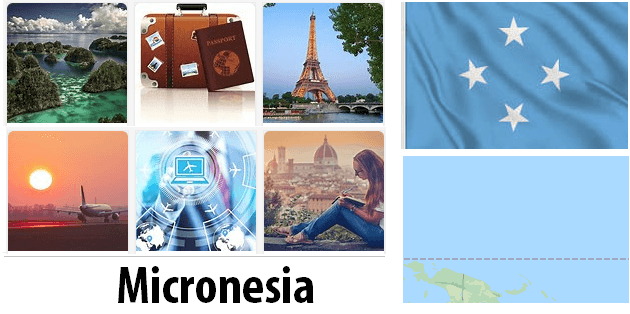
In 2015, the politics of Micronesia were largely dominated by the United Micronesian Party (UMP), which had been in power since 2007. The UMP was led by President Emanuel Mori and focused on a range of social and economic reforms, such as reducing poverty and improving access to health care. The party also sought to promote Micronesia’s reputation as a tourist destination, and to improve its relationship with other countries in the region. Other political parties included the Democratic Party, which was led by Peter Christian, and the People’s Democratic Movement (PDM). See ehealthfacts for Micronesia in the year of 2005.
The 2015 election was held in May of that year and saw Mori’s UMP win a majority in both chambers of Congress with 14 out of 14 seats. This ensured that they would remain in power for another four years. During this time, President Mori sought to implement further reforms to improve Micronesia’s economic standing while ensuring social justice for all citizens. He also worked towards improving relations with other countries in the region and strengthening ties with international organizations such as the United Nations. In 2019, he was succeeded by David Panuelo following a successful presidential election campaign.
Yearbook 2015

Micronesia Federation. In March, the island states of Chuuk and Yap, part of the Micronesian federation, were hit by the tropical cyclone Maysak, which caused about five deaths and major material damage. In particular, agriculture was severely affected when large parts of the crops, including bananas and breadfruit, were destroyed. According to COUNTRYAAH, Palikir is the capital of Federated States of Micronesia which is located in Micronesia. The relief work was made more difficult by the large distances that characterize the different parts of the federation. The month before, Chuuk Governor Johnson Elimo announced that the planned vote that would decide whether Chuuk should seek independence from the Micronesia Federation was postponed indefinitely. The background to the independence debate is that Chuuk does not receive a fair share of the benefits that the free association with the United States, signed in 1986, provides.
- Also see AbbreviationFinder.org for Micronesia country abbreviations, including geography, history, economy and politics.
In March, elections were held for Congress, the country’s parliament. There are no parties in the country, so the candidates stand for independence. The newly elected Congress in May appointed Peter M. Christian from the state of Pohnpei as new president. Yosiwo George was elected Vice President of Kosrae.

Micronesia, Federated States of island state of Oceania, in the western Pacific, consisting of four groups of islands and atolls: Chuuk (formerly Truk), Kosrae (formerly Kusaie), Pohnpei (formerly Ponape) and Yap, whose territories are included in Caroline Islands.
Geographical and economic characteristics
The main Caroline Islands are volcanic and mountainous, the others are coral atolls. The climate is tropical, influenced by the trade winds. The rains are abundant throughout the year.
The population was formed through different ethnic contributions: Micronesian is noteworthy, but Polynesians and mestizos are also present. Almost half of the population lives in the Chuuk archipelago; the capital, Palikir, is a small town of 6000 residents on the island of Pohnpei, the largest. The prevailing religion is the Christian one.
Main activities are agriculture (coconuts, sweet potatoes, cassava and bananas), fishing and tourism, but the country is heavily dependent, both in defense and economy, on US aid and licensing for fishing.
HISTORY
Colonized first by the Portuguese and then by the Spaniards, included in the German protectorate since 1885, the States of Micronesia were occupied by Japan in 1914 (mandate of the League of Nations from 1922) and in 1935 they were annexed by Tokyo. Entrusted in 1947 to the USA in administration on a UN mandate as part of the Trust Territory of the Pacific Islands, they gave themselves a federal constitution in 1979 and subsequently (1982) signed with Washington a pact of free association, which entered into force in 1986; in 1991 they were admitted to the UN as a sovereign state freely associated with the United States. The treaty, renewed in 2004, provides for US assistance in economic and national defense matters. In terms of internal politics, in 2007 the Parliament elected E. Mori as President of the Republic, reconfirmed in 2011, while in May 2015 PM Christian was elected head of state.